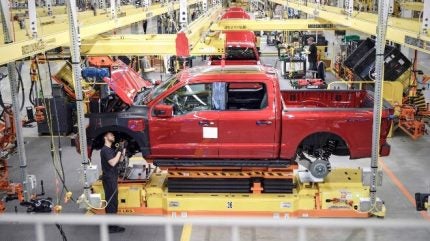
Donald Trump made numerous pledges during his presidential campaign to end the United States’ “preposterous” focus on electric vehicles (EVs) introduced by the last president Joe Biden and the Democratic Party.
Since his inauguration, Trump has demonstrated that these were not empty pledges and signed an executive order (EO) to bring an end to the incorrectly labelled “electrical vehicle mandate” imposed by Biden.
This EO is one aspect of a general attempt by the Trump administration to scale back US commitments to slowing climate change. Here is one view on what may happen next.
Electric Vehicles (EV) – Thematic Research
What Trump’s EO says about his stance on EVs and climate change
According to Trump, the order is essential for economic growth and innovation as it promotes true consumer choice by removing regulatory barriers to motor vehicle access and ensures a level regulatory playing field. However, the Biden administration never actually introduced a mandate to force anyone to buy EVs—the policies merely aimed to encourage the take up of EVs by the US public, as well as give car companies financial incentives to move from internal combustion engine (ICE) vehicles to electric-powered ones.
Trump’s EO, entitled “Unleashing American Energy”, revokes the non-binding target set by the Biden administration that EVs comprise half of all new cars sold by 2030. It will also terminate a federal exemption that would have allowed the state of California to phase out sales of ICE vehicles by 2035, and this will also impact more than a dozen other states with similar exemptions. The attack on CARB will provoke a legal challenge that could last through Trump’s presidency.
It is likely, judging by the language in this order, that Trump will also seek to repeal a US$7,500 tax credit for new EV purchases introduced by Biden in 2022, as well as undo the latter’s Environmental Protection Agency (EPA) rules, which restrict limits on harmful emissions from passenger and commercial vehicles.
The US EV market outlook
The EV market in the US may temporarily experience a significant upturn in sales as buyers rush to capitalise on the existing tax credits that encourage EV purchases. However, light-duty vehicles such as cars and trucks account for more than 50% of US greenhouse gas emissions from transportation, and the sector itself is, unsurprisingly, a major contributor to overall US emissions. This means that in the long run, Trump’s order will make it difficult for the US to meet emissions reduction targets. Should the Trump administration attempt to undo or revise regulations on emissions reduction, this action will likely be met with legal challenges from environmental groups, among others.
Interestingly, Trump’s newfound alliance with Tesla CEO Elon Musk had seemed to temporarily soften his stance on EVs in the months leading up to his re-election. Tesla is an EV market leader and has the highest market capitalization of any automaker in the world, so it would seem unwise for Trump to take action that goes against the business interests of a close and highly influential ally, who also happens to be the world’s richest man. Furthermore, Musk is now the head of the Trump administration’s new Department of Government Efficiency, so it will be interesting to see how far the recently re-elected President takes his seemingly personal battle against EVs in the US.







